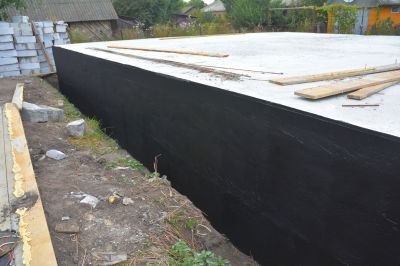Optimal Timing for Waterproofing Applications
Waterproofing is a critical component in protecting structures from water intrusion and damage. Proper timing ensures maximum effectiveness and longevity of waterproofing systems. The optimal time for applying waterproofing depends on climate conditions, material type, and the specific project requirements.
Spring offers moderate temperatures and lower humidity, ideal for waterproofing projects. It allows sufficient curing time before summer heat or winter cold.
Summer provides longer daylight hours and warmer weather, but high temperatures and humidity can affect curing times and adhesion of waterproofing materials.
Fall is suitable when temperatures remain stable and before winter weather begins. It helps prevent water damage during the rainy season.
Winter is generally not recommended due to freezing temperatures and increased moisture, which can hinder proper application and curing.

Ways to make Waterproofings work in tight or awkward layouts.

Popular materials for Waterproofings and why they hold up over time.

Simple add-ons that improve Waterproofings without blowing the budget.

High-end options that actually feel worth it for Waterproofings.

Finishes and colors that play nicely with Waterproofings.

Little measurements that prevent headaches on Waterproofings day.

A 60-second routine that keeps Waterproofings looking new.

A frequent mistake in Waterproofings and how to dodge it.

Small tweaks to make Waterproofings safer and easier to use.
| Season | Recommended Conditions |
|---|---|
| Spring | Moderate temperatures, low humidity, dry days |
| Summer | Warm weather, avoid extreme heat and humidity |
| Fall | Stable temperatures, before winter rains |
| Winter | Not recommended due to freezing temperatures |
Waterproofings are essential for protecting structures from water penetration, which can lead to structural damage, mold growth, and interior deterioration. Proper application during the right season enhances durability and reduces long-term maintenance costs. Advances in waterproofing technology include flexible membranes, liquid coatings, and vapor barriers, each suited for different conditions and surfaces. Statistics indicate that correctly timed waterproofing can extend the lifespan of a building by decades and significantly reduce water-related repairs.

Lower-waste or water-saving choices for Waterproofings.

The short, realistic tool list for quality Waterproofings.

Rough timing from prep to clean-up for Waterproofings.

Quick checks and paperwork to keep after Waterproofings.
Interested in waterproofing services? Filling out the contact form can provide more information on suitable timing and options for specific structures and needs. Proper scheduling ensures optimal results and lasting protection against water damage.




